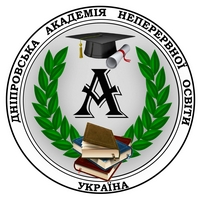EDUCATIONAL MOBILITY AS A PLATFORM FOR THE FORMATION OF THE POLYLOGICAL CULTURE OF A MODERN PERSON
Abstract
The article considers educational mobility as a new paradigm of the educational process, as a marker of creating a new configuration of the educational space. The purpose of the article is to understand educational mobility as a phenomenon that creates new opportunities for a person living in the information age where educational mobility is a condition for the formation of polylogical human culture. The article states that information modernity creates new challenges for the existence of a person and society. It is about the self-reflection of a person, which is evidence of paradigmatic changes that affect the entire educational space. One of the existing problems is the contradictions associated with the formation and consolidation of such a socio-cultural practice as educational mobility. The latter acquires special relevance in the conditions of transformation of society and educational space. It is emphasized that a new configuration of interactions / communications is being created, which should be understood not only as participation or information transfer, but primarily as unity (A. Gofron). It is emphasized that philosophy, which is responsible for understanding the deep problems of human development, arises in the conditions of uncertainty in the conditions of modern technology. It is about the need for new communication which is what educational mobility stands for. It is noted that education as a creative process should not be separated from objective reality, that is, it should correspond to the changes that characterize society and the person himself. Educational mobility is developed as a new interaction that corresponds to the polylogical nature of culture and allows the individual to preserve his uniqueness, the ability to interact within the multicultural space. It is emphasized that modern Ukrainian society is characterized by a combination of the specifics of national education with the principles of the European educational space, which ends, on the one hand, with universalization, and on the other, with the creation of a space to support cultural diversity. It has been proven that educational mobility allows building new relationships in a situation of destruction of traditional social foundations, changes in fundamental semantic values. Educational mobility demonstrates the possibility of forming a new figure of a person or a person of a new culture. It is about the formation of new strategies, which are an imprint of the transformational processes of the present and a challenge for the life activity and life-creating life of a modern person. It is emphasized that educational mobility is aimed at activating the educational process, overcoming the principle of inventorying existing value or cultural systems. It is about their combination, which indicates tolerance, the possibility of dialogue and defining strategies in the context of joint responsibility for the further existence of humanity, which is impossible without the involvement of philosophical systems.
References
2. Андрущенко В. П. Філософія освіти: у 5 книгах. Кн. 5: статті та інтерв’ю / наук. ред. д-р філос. наук, проф. Н. В. Кочубей. Суми, 2021. 536 с.
3. Андрущенко В. Г. Філософія освіти «в замежжі завтрашнього дня». Філософія освіти. 2008. № 1–2 (7). С. 7–14.
4. Бауман З., Донкінс Л. Плинне зло. Життя без альтернатив / пер. з англ. О. Буценко. Київ: Дух і літера. 2017. 216 с.
5. Габермас Ю. Постметафізичне мислення. Філософія освіти. 2011. № 1–2 (10). С. 35–96.
6. Гелтон Ю. Глобальний заблуд, або нестерпне просвітлення буття. Глобальні модерності / редкол.: М. Фезерстоун, С. Леш, Р. Робертсон. Київ: Ніка-центр. 2008. С. 361–384.
7. Горбунова Л. С. Номадизм як спосіб мислення і освітня стратегія. Філософія освіти. 2011. № 1– 2 (10). С. 17–34.
8. Гофрон А. Філософсько-комунікативні аспекти освіти. Філософія освіти. 2006. № 1 (3). С. 43–53.
9. Гусман Д. С. Герой повсякденності: Роздуми філософа / пер. з ісп. В. Сахно. Київ: Новий Акрополь. 2004. 117 с.
10. Квєк М. Місце філософії в університеті: Минуле, теперішнє, майбутнє. URL: https://repozytorium.amu.edu.pl/server/api/core/bitstreams/bc56b7af-16cb-45de-a2f9-42b45eaa994f/content (дата звернення: 25.05.2023).
11. Педагогічна Конституція Європи. URL: http://www.alla-kolomiytseva.kh.sch.in.ua/Files/downloadcenter/ (дата звернення: 07.06.2023).
12. Петренко В. Д. Відтворювати і трансформувати. Філософська антропологія медіа: монографія. Харків: ХНУ ім. В. Н. Каразіна. 2016. 372 с.
13. Пилипенко С. Г. Трансформація культури в умовах глобалізації: філософсько-антропологічний вимір: автореф. дис. на здобуття наук. ступеня канд. філос. наук: спец. 09.00.04 «філософська антропологія, філософія культури». Харків, 2012. 19 с.
14. Постанова Кабінету Міністрів України «Про затвердження Порядку реалізації права на академічну мобільність». URL: https://zakon.rada.gov.ua/laws/show/579-2015-%D0%BF#Text (дата звернення: 07.06.2023).
15. Табачковський В. Проблеми педагогіки у світлі сучасної філософської антропології. Філософія освіти. 2005. № 1. С. 135–148.
16. Цимбалару А. Д. Освітній простір: сутність, структура і механізми створення. Український педагогічний журнал. 2016. № 1. С. 41–50. URL: https://lib.iitta.gov.ua/715281/1/%.pdf (дата звернення: 07.06.2023).
17. Fukuyama F. The Great Disruption: Human Nature and the Reconstitution of Social Order. New York: Free Press, 2000. 368 p.
18. Gardner H. Frames of Mind: The Theory of Multiple Intelligences. New York: Harper and Row, 1983. 430 p.
19. Mannheim K. Diagnosis of Our Time. URL: http://mek.oszk.hu/18000/18060/18060.pdf (дата звернення: 17.05.2023).

 ISSN
ISSN  ISSN
ISSN 

